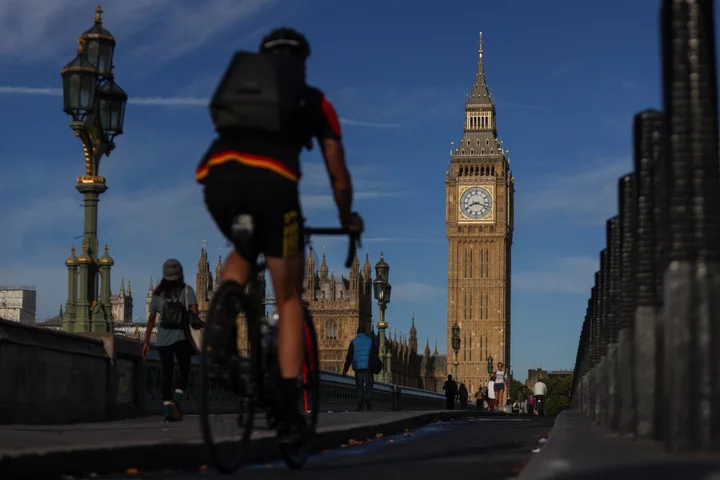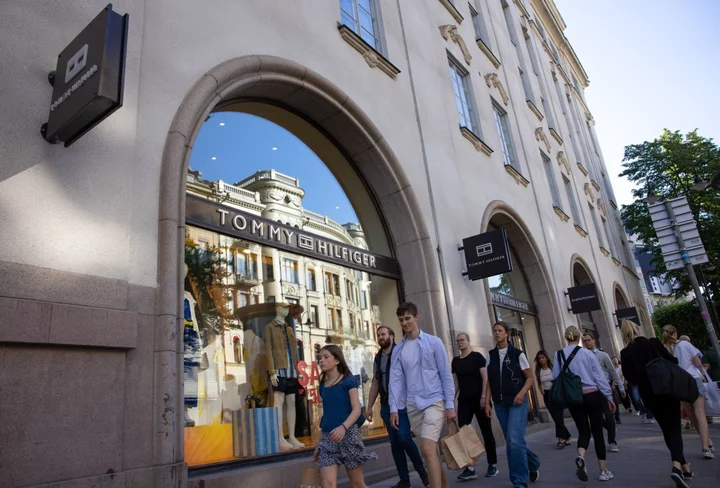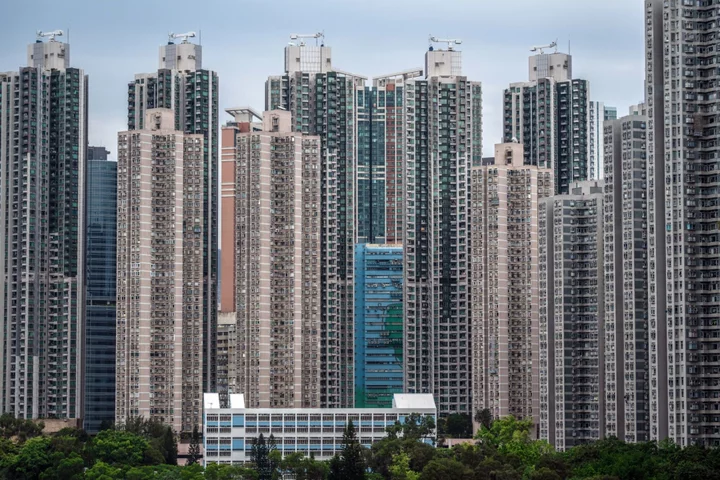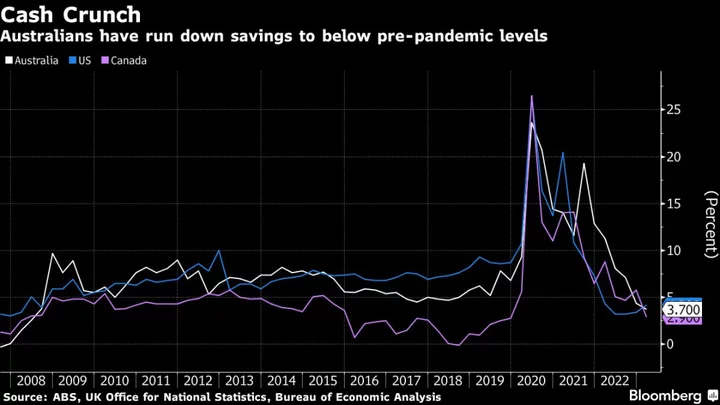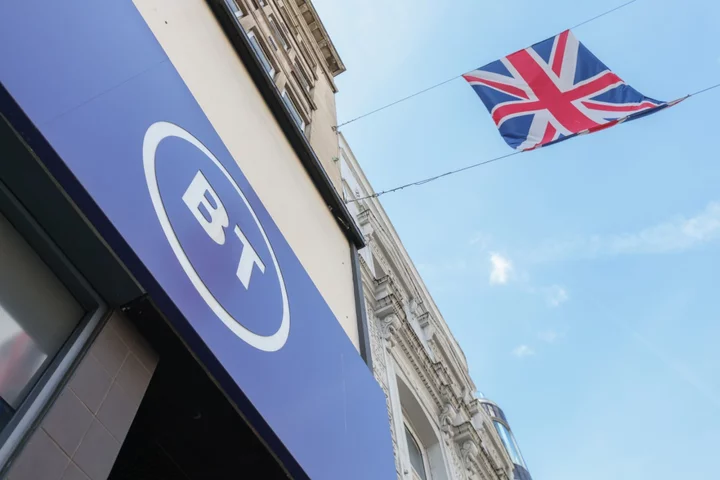UK wage growth held at a record high in the three months through July, a sign of persistent inflation that will keep pressure on the Bank of England to raise interest rates again.
Average earnings excluding bonuses rose 7.8% from a year earlier, matching the fastest pace since the series began in 2001, the Office for National Statistics said Tuesday. The reading was expected by economists in a Bloomberg survey.
The figure came despite signs that the labor market is starting cool in response to the squeeze being inflicted by the highest borrowing costs since 2008. Unemployment ticked higher for a third month to 4.3%, and vacancies continued to fall. However, that’s unlikely to stop the BOE delivering a 15th consecutive rate increase later this month as it battles to get a grip on above-target inflation.
Money markets are pricing in a quarter-point hike to 5.5% and see a more-than 50% chance of a further rise by the end of the year. They then expect rates to remain on hold for much of 2024, a view recently endorsed by BOE Chief Economics Huw Pill who said he favored a “Table Mountain” path for rates, where they remain elevated for some time.
Strong divisions have emerged at the central bank about how to respond to inflation. BOE Governor Andrew Bailey suggested the BOE is nearing an end to its quickest series of rate hikes in more than three decades. However, fellow policy Catherine Mann on Monday revealed potential splits on the Monetary Policy Committee when she urged officials to “err on the side of tightening further” to prevent elevated inflation from taking root.
The focus will now turn inflation data next week. The BOE is forecasting a temporary uptick to 7.1% in August before price growth resumes its decline toward the 2% target.
High wage growth poses another problem for Chancellor of the Exchequer Jeremy Hunt as he tries to create room for tax cuts a general election election expected next year.
A “triple-lock” commitment to raise the state pension by the higher of wage growth, inflation or 2.5% means retirees could be in for a boost next year, as the formula uses the earnings figures for May to July. Inflation is expected by the BOE to be back below 7% in September, the month used to determine the CPI component.
It will add billions to public spending. Prime Minister Rishi Sunak has refused to maintaining the pledge if the Conservatives stay in power.
The BOE expects unemployment to rise steadily to 5% by 2026 but a key question is how far it has to rise before the labor market is cool enough to take the heat out of wages, which have been bid up by workers to trying to keep up with the rising cost of living. Bloomberg Economics thinks that rate is higher than the 4.25% currently assumed by the BOE.
Labor shortages have given workers unprecedented bargaining power, though there are signs of that many people are now returning to the labor market.
--With assistance from Andrew Atkinson.

